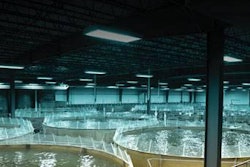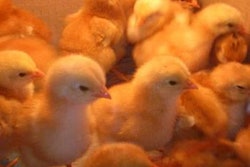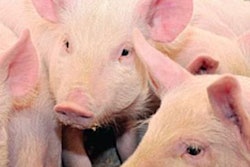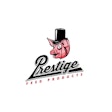Algae (also called seaweeds) are considered an important source of nutrients for feeding animals in the near future. Although the technology is still evolving to meet commercial requirements, research is ongoing to identify areas where algae can improve animal performance, health and welfare. To this end, a study was conducted in Canada to evaluate the effects of the inclusion of red seaweeds to standard layer diets on productivity, egg quality and intestinal health.
A total of 160 brown layers were randomly assigned to 8 treatment groups. Control hens were fed a basal layer diet; positive control hens were fed a diet containing 2 percent inulin; and six treatment groups were fed a diet containing one of the following: 0.5, 1.0 or 2.0 percent Chondrus crispus (CC0.5, CC1 and CC2, respectively) and one of the same 3 levels of Sarcodiotheca gaudichaudii (SG0.5, SG1, and SG2 respectively).
Results indicated that dietary supplementation with red seaweeds had no significant effect on feed intake, body weight, egg production, fecal moisture content and blood serum profile of the birds. Nevertheless, the feed conversion ratio per gram of egg was significantly improved (P = 0.001) for hens received either of the 2 percent red seaweed treatments. Interestingly, SG1 supplementation increased egg yolk weight, whereas birds with CC1 supplementation had higher egg weight, but why the same results were not replicated in CC2 and SG2 remains unclear. Finally, both SG2 and CC2 groups had greater (P < 0.05) villus height and villus surface area compared with the control birds, indicating a healthier gut and explaining in part the improved feed efficiency.
Seaweed supplementation increased the abundance of beneficial bacteria; for example, Bifidobacterium longum increased by 4- to 14-fold, and Streptococcus salivarius by 4- to 15-fold. It also reduced the prevalence of Clostridium perfringens in the gut. Additionally, the concentrations of short-chain fatty acids (acetic acid, propionic acid, n-butyric acid and i-butyric acid) were significantly higher (P < 0.05) in CC and SG treatments than in the control group.
It appears that dietary supplementation using red seaweeds can act as a potential prebiotic to improve feed efficiency, egg quality, and overall gut health in layer hens.















